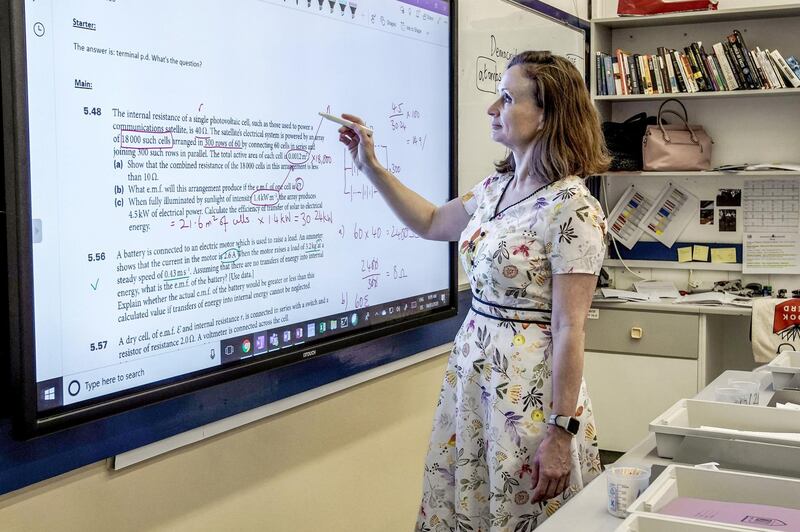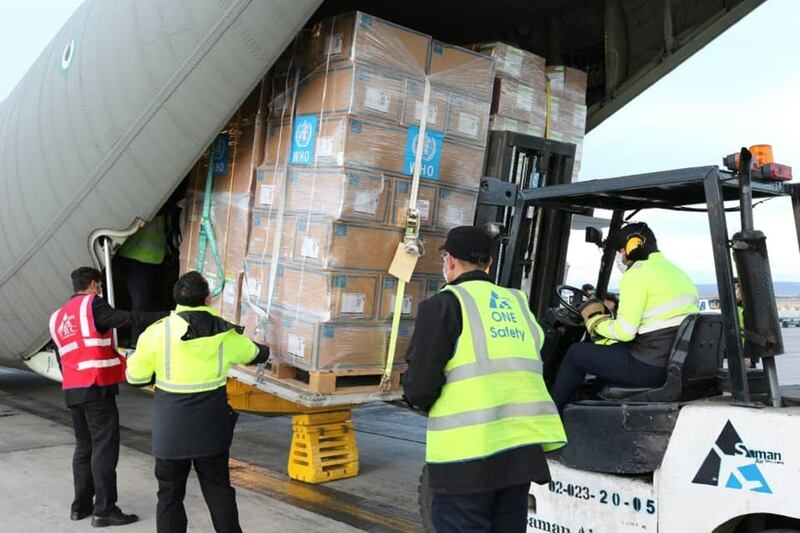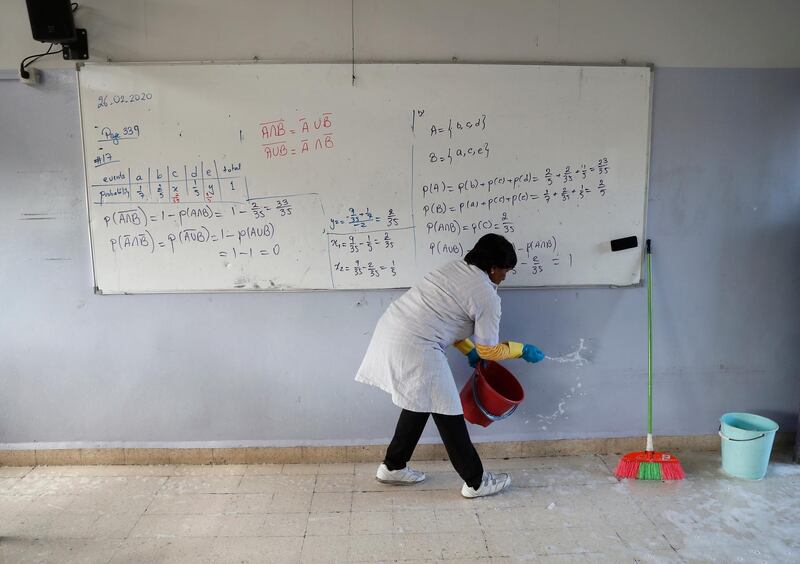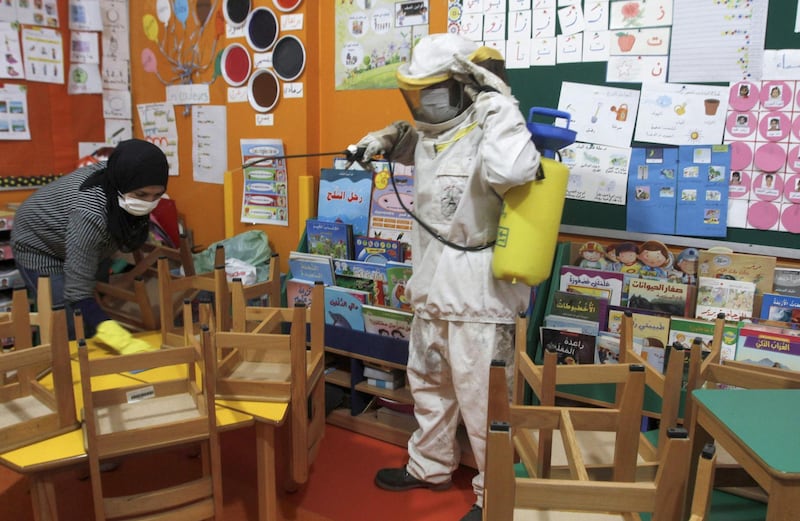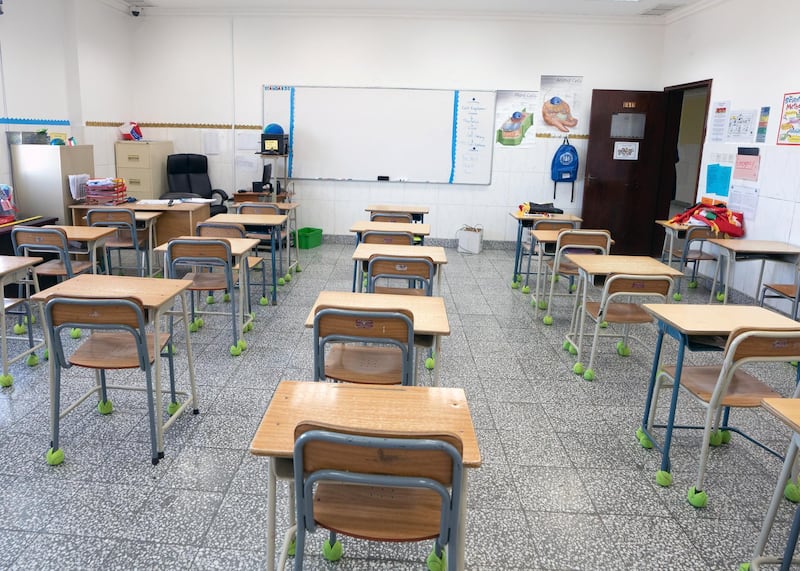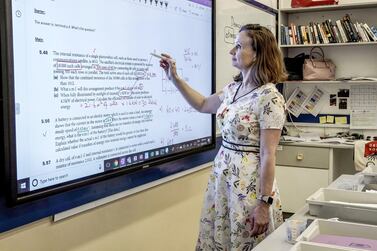After an early two-week spring break that begins this Sunday, hundreds of thousands of pupils will return to school.
But they won't be at their desks.
Schools across the country will remain closed for a further two weeks after the holiday. The government said it made the decision on Tuesday night as a precaution to prevent the spread of coronavirus.
The Covid-19 virus only affects a fraction of one per cent of children, but as with any country, huge daily movements of people can spread disease – especially a contagious one like coronavirus.
So how will pupils – facing tough exams, international competition for university places and global education targets – keep up?
Dubai College gave The National a demonstration of its Skype-style classroom system.
It allows teachers to give lessons in real-time to pupils at home using a combination of Microsoft 365 – used for presentations in the business world – and the video-conferencing app Cisco Webex.
Each pupil reports in online and settles down for class. They are even expected to dress smart – "no pyjamas and no swimwear".
“I get a picture of all them and then check the register to see they are all present,” said physics teacher Regina O’Dwyer, standing at an electronic white board at the school in Al Sufouh.
“Then I share the board I am working on with them. I will give them work to do in their virtual exercise books then.
“I can go in and out to check their progress and I can see them at all times.”
She said challenges would not come from pupils or staff struggling to adapt but from connectivity issues as the whole country logs on at 7.30am. There are more than 1,200 schools in the UAE and 1.1 million pupils, according to the Ministry of Education.
“Is the bandwidth going to be able to cope with every pupil in the country suddenly live-streaming all day?
“All the lessons will be recorded though and a link will be available if students can’t connect initially,” Ms O’Dwyer said.
Schools across the country are preparing for the coming weeks – many may not already have such systems in place – but in the long run, pupils may tire of the e-lessons between 7.45am and 3.35pm.
Dubai airport implements strict screening practices for coronavirus
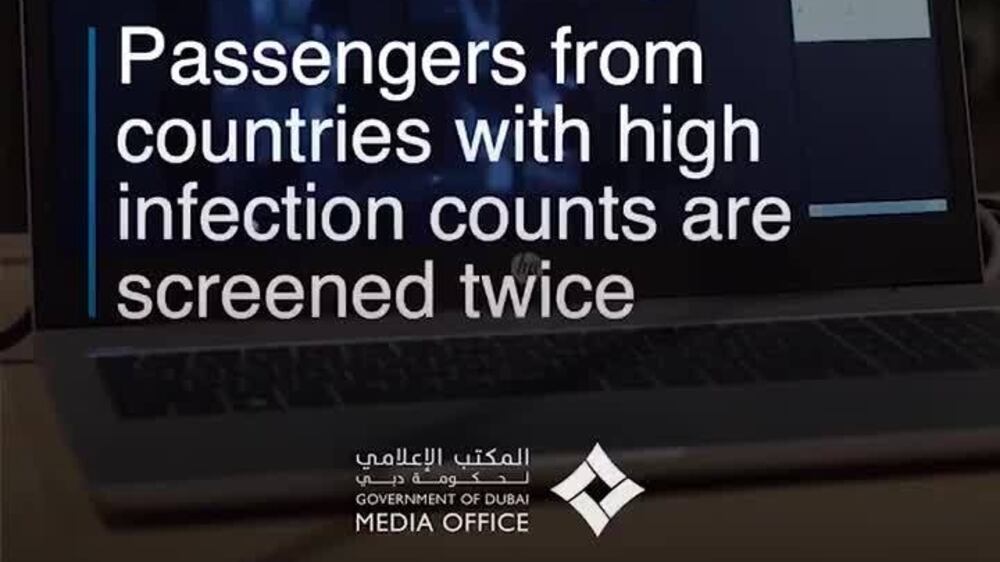
“Two weeks is fine but if it goes on any longer they are going to get lonely just sitting at home and they will lose that connectivity they get from being with others in school,” she said.
“Even with the best will in the world, it’s going to be hard for pupils unless they are very dedicated and motivated.”
Headteacher Michael Lambert said the school recognises that flexibility is needed, with children sitting in their home environment, but said standards must be adhered to.
“We haven’t mandated that school uniforms must be worn – but we’ve asked for no pyjamas and no swimwear,” he said.
“Staff need to dress professionally while students need to dress respectfully.
“We are running a regular school day except it’s online, we have 50-minute lessons, which will be reduced to 40 minutes.
“There will be a 10-minute transition for pupils and teachers to disconnect from screens.
“This means they wouldn’t be staring at a computer screen for the entire duration of the day.”
Heavy rain and widespread flooding in the 2019/2020 academic year has already led to school closures and missed lessons.
The home-learning system could be introduced next time that happens, he said.
"We live in an age of pandemic; we've seen Sars, Mers, Ebola and now coronavirus. It's only [going] to keep coming because we live in an increasingly globalised world," Mr Lambert said.
“In terms of continuity for schools, everyone’s got to have a plan because if it’s not coronavirus then it will be something else.
“We are all going to be in this situation again and while teaching remotely online is not a perfect solution, it is what we will have to turn to when scenarios like this occur.”
Tuesday evening’s announcement meant spring break, which was due to begin on March 29, was brought forward by two weeks.
This would then be followed by two weeks of home-teaching in which students would be taught online until April 5.
Almost 1,000 students at Dubai College were being put through their paces on how exactly the set-up would work on Wednesday.
Mr Lambert asked parents, many of whom may need to take time off or work from home, to try to set aside a workspace.
“A child might need to be in a bedroom, especially if they are in a small apartment and need somewhere quiet to study,” he said.
“We will be as open and transparent as we possibly can and will have a digital recording of each and every lesson to ensure all child protection and safety standards are upheld.”
